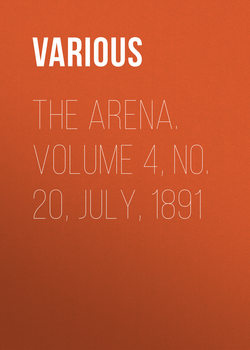Читать книгу The Arena. Volume 4, No. 20, July, 1891 - Various - Страница 5
THE UNKNOWN. 1
ОглавлениеPART II
BY CAMILLE FLAMMARION
The human soul would seem to be a spiritual substance, endowed with psychical force, capable of acting outside bodily limits. This force, like all others, may be transmissible into the form of electricity or heat, or may be capable of bringing into activity certain latent energies while it yet remains intimately united with our mental being.
We propound questions to the table, already impressed with our nervous impetus, on subjects interesting to ourselves; and then we ourselves unconsciously inspire the responses. The table speaks to us in our own language, giving back our own ideas, within the limits of our own knowledge, conversing with us about our opinions and views, as we might discuss them with ourselves. This is absolutely the reflection—direct or remote, precise or vague—of our own feelings and thoughts. All my efforts to establish the identity of a stranger spirit, unknown to the persons present, have failed.
On the other hand, attentive examination of different communications leads us toward a conclusion as to their origin. When amidst the Marquis de Mirville’s revelations, one is in the full swing of Roman Catholic diabolism—demons, spirits, purgatory, miracles, prayers,—nothing is lacking. With the Count de Gasparin, we are in the bosom of Rational Protestantism, which is absolutely the opposite of the other. Here are no present miracles, no devils, but simply a physical agency, a fluid obedient to volition. In the experiences of Eugene Nus’s circle, we find the language of Fourier discoursing about the phalanstery, about racial solidarity, and socialistic religion. Therein are found earthly music chanted in space,—songs of Saturn and Jupiter dictated under the influence of Alyre Bureau, who was the musician for the spiritualist society of Allan-Kardec. Here we have disembodied spirits of all ranks, and this is the apostolate of their reincarnation.
In the United States, on the contrary, the moving tables declare that the hypothesis of reincarnation is absurd and misleading; and it may be assumed that none of the persons present, especially the ladies, would for one moment admit the possibility of being some day reincarnated beneath the skin of a negro. A brilliant imagination, like that of Sardou, will picture to us Jupiter’s castles; a musician may receive the revelation of a musical composition, more or less charming; an astronomer may be favored with astronomical communications. Is this physical auto-suggestion? Not absolutely, since the force goes outside of ourselves, in order to act. It is rather mental suggestion; yet an idea cannot be suggested to a piece of wood. This is, therefore, the direct action of the mind. I cannot find a better name for it than psychical force, a term, as already stated, which I have used since 1865, and which has since become the fashion.
The action of mind, outside the body, has other testimony, however. Magnetism, hypnotism, suggestion, telepathy prove this every day. It cannot be disputed that here also we encounter many illusions.
Some ten years ago a learned physician at Nice, Doctor Barety, the author of “La Force Neurique Rayonnante et Circulante” (The Radiation and Circulation of Nervous Force) devoted himself to ingenious experiments in the distant transmission of thought as observable in a magnetized person. In these experiments, in which I assisted, it seemed to me that the subject’s sense of hearing amply sufficed to explain the results.
Take one case. The subject began to count aloud, while the magnetizer was in an adjoining room, the door standing open between them. At a certain moment the doctor, with all his energy, projected his “nervous fluid” from his hands, and the magnetized subject forthwith ceased counting; yet the doctor’s linen cuffs made enough noise to indicate what he commanded, though no word was spoken. During the experiments at Salpétrière and at Ivry, to which Doctor Luys was kind enough to invite me, I thought I observed that a previous knowledge of the sequence of the experiments furnished a wide margin for the exercise of the personal faculties of the young women upon whom the experiments were made. These suspicions, however, did not prevent certain facts in regard to mental suggestion from being absolutely incontestable.
